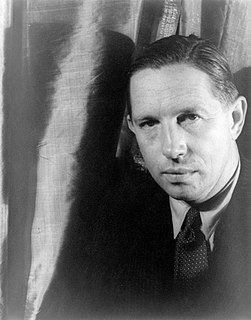A Quote by Prashant Bhushan
If only Rs.10 lakhs on an average were given to each of the less than 1 million villages in the country for rainwater harvesting on the lines pioneered by the Tarun Bharat Sangh in Rajasthan, much of the agricultural land in the country could be irrigated.
Related Quotes
In my opinion, if 100% of the people were farming it would be ideal. If each person were given one quarter-acre, that is 1 1/4 acres to a family of five, that would be more than enough land to support the family for the whole year. If natural farming were practiced, a farmer would also have plenty of time for leisure and social activities within the village community. I think this is the most direct path toward making this country a happy, pleasant land.
We came here to a country that was populated by Arabs and we are building here a Hebrew, a Jewish state; instead of the Arab villages, Jewish villages were established. You even do not know the names of those villages, and I do not blame you because these villages no longer exist. There is not a single Jewish settlement that was not established in the place of a former Arab Village.
To blindly trust government is to automatically vest it with excessive power. To distrust government is simply to trust humanity - to trust in the ability of average people to peacefully, productively coexist without some official policing their every move. The State is merely another human institution - less creative than Microsoft, less reliable than Federal Express, less responsible than the average farmer husbanding his land, and less prudent than the average citizen spending his own paycheck.
When I began my life journey, we'd survive on Rs 500 a month as a family. As time passed and I started playing for the country, this Rs 500 multiplied manifold, but it was not the money that mattered: it was the fact that I was fulfilling my ambition of playing cricket on the highest platform, representing my country.
Jewish villages were built in the place of Arab villages. You do not even know the names of these Arab villages, and I do not blame you, because these geography books no longer exist; not only do the books not exist, the Arab villages are not there either. Nahalal arose in the place of Mahalul, Gevat - in the place of Jibta, Sarid - in the place of Haneifs and Kefar Yehoshua - in the place of Tell Shaman. There is no one place built in this country that did not have a former Arab population.
As natural selection acts by competition, it adapts the inhabitants of each country only in relation to the degree of perfection of their associates; so that we need feel no surprise at the inhabitants of any one country, although on the ordinary view supposed to have been specially created and adapted for that country, being beaten and supplanted by the naturalised productions from another land.
Rightfully given near-deity status in the early days of industrial America, the J.P. Morgans, Rockefellers, Carnegies, and Vanderbilts of the world not only ran our country, they were also revered - and often despised - as larger-than-life personalities who could perform feats mere mortals could only dream of.
Anyway, what is a country? When people say, "Tell me about India," I say, "Which India?.... The land of poetry and mad rebellion? The one that produces haunting music and exquisite textiles? The one that invented the caste system and celebrates the genocide of Muslims and Sikhs and the lynching of Dalits? The country of dollar billionaires? Or the one in which 800 million live on less than half-a-dollar a day? Which India?"


































